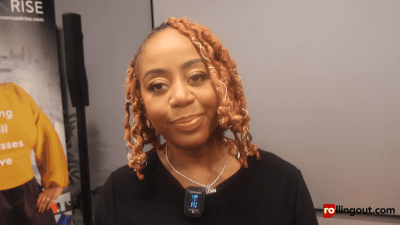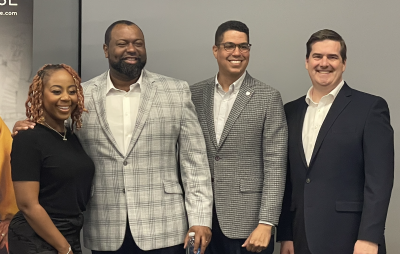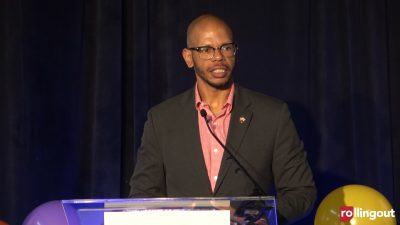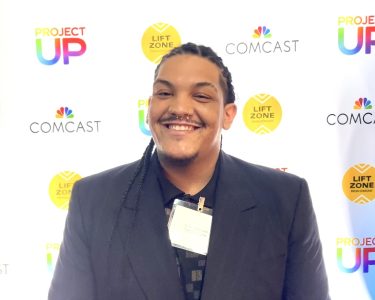 Bret Perkins, the vice president of external and government affairs for Comcast Corporation, works with national advocacy agencies that shape public policy, communication and technology.
Bret Perkins, the vice president of external and government affairs for Comcast Corporation, works with national advocacy agencies that shape public policy, communication and technology.
He is currently working with Comcast on Internet Essentials, a campaign designed to expose more minority and low-income residents to the Internet through special program offerings. Perkins sat down with rolling out in New York to discuss his style of leadership, the value formal and informal education has had on his career and the importance of mentorships.
What is your style of leadership?
I’ve been fortunate. I’ve worked for some really great people throughout my career. And the first thing I noticed is that leadership matters. The first thing is to understand what’s important to you and making yourself a part of that. If I just tell you where I’m going for a certain period of time but it’s not in your interest, at some point in time you run out of energy to continue. The people that I’ve worked for have provided opportunities, and they had taken an interest in my development as a professional. (They told me) that in order to some other place, three or four years down the road you’re going to need these sets of skills, and to get these set of skills these are the things you need to do. I’ve been fortunate to have worked for people who took the long view of me. What I am today is not what I’ll be a year from now. And that has allowed me to take stretch assignments that have enabled me to grow and, in turn, I’ve tried to do that with the people that work for me. We have a job to do and I want smart dedicated people. In this industry we’re lucky that we’re doing so much. You get a chance to do that. There is always more to do than what we have arms and legs to do. So if you’re willing to pick things up, I guarantee you will grow and have the chance to be something different next year than where you are now.
What has education meant to your career and personal growth?
I try to think of myself as a lifelong learner. Reading is a part of my job and part of it is intellectual curiosity. Technology makes it possible. My parents put up maps in my room of the solar systems, the planets, the world and of the U.S. So I always looked at other things and had a curiosity about it. I’m a bit of an amateur history person. I love 18th century history and the founding of this country. I just downloaded a series of Web courses from Yale on the [U.S.] Revolution — a course that is actually taught at Yale taught from a Yale professor. And I have access to it because of broadband Internet. There are other things. I have an interest in the Middle East and I have a bunch of apps that gives me, every day or every week, information of what’s happening in the Middle East. And I can be educated because I have access to this technology. And then I think about the world my children are growing up in. It’s a global society. My kids will learn they have to be global. And so, being able to give them that because of where you are is invaluable. I can’t hop on a train and be in three countries in a day. But online I can expose them to all sorts of different readings, places and maps. I was in Egypt and taught my sons about what I saw there through the Internet … Here’s the Pyramid of Giza, here’s the Sphinx. It’s awesome.
How important is it to have a mentor and be a mentor?
The biggest impact of my adult professional career was meeting my mentor. I always told people that I didn’t know how to be a mentor until I met my mentor. My mentor is now retired. She ran the hospital at the University of Pennsylvania, the first African American to run such an operation. She is incredibly smart, sharp and intuitive. Her style of mentorship was one part professionally and another part emotionally as a person. She essentially adopted me. Each stage of my career, she’s been a guide to both help inside of work and outside of work. She knows my wife and she’s now like another mother to both of us, helping us sort through work and life. She has her family, her career and she’s done it all. I know the value of mentorships. I spend a lot of time working with Temple University students and working-class families who don’t have a lot of advantages. I can provide a road map for (the students) so they start their careers off the right way. I know how important it is to have a mentor. It has made and continues to make a difference in my career.











